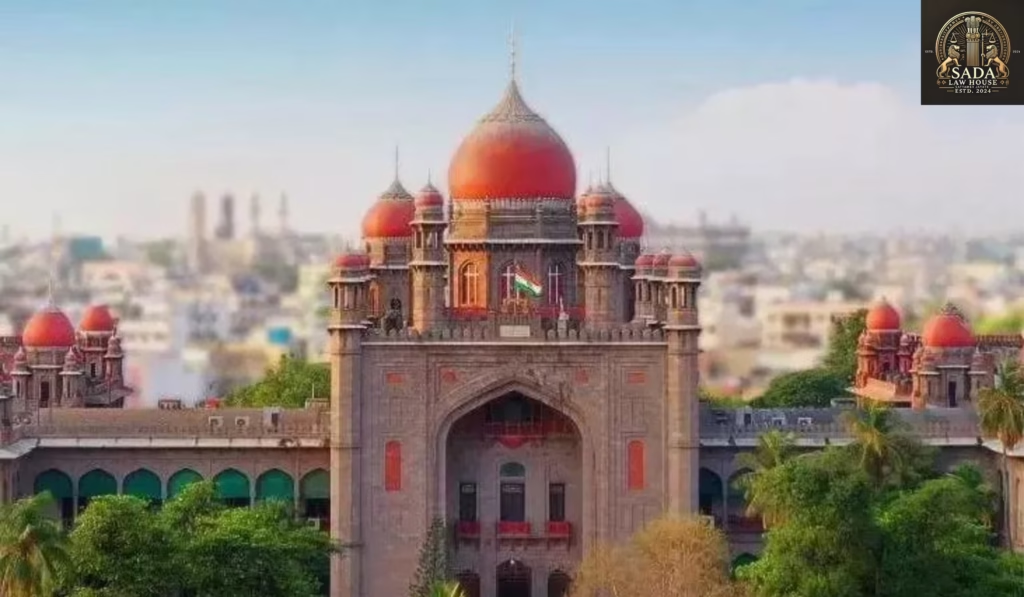Telangana High Court Reviews Cow Protection Law Enforcement Ahead of Bakrid Festival
Trending Today Telangana High Court Reviews Cow Protection Law Enforcement Ahead of Bakrid Festival Bombay High Court Allows Animal Sacrifice at Vishalgad Fort During Urs Festival Amid Protests Bengaluru RCB Victory Parade Stampede: 11 Dead, Legal Action and Public Outcry Follow IPL Celebration Tragedy LEGAL JOB OPPORTUNITY AT PEOPLESCIENT LEGAL JOB OPPORTUNITY AT SARIN PARTNERS JOB OPPORTUNITY AT VIDHI CENTRE FOR LEGAL POLICY INTERNSHIP OPPORTUNITY AT DEPARTMENT OF LEGAL AFFAIRS LEGAL JOB OPPORTUNITY AT UNITEDLEX JOB OPPORTUNITY AT NMIMS KIRIT P. MEHTA SCHOOL OF LAW Supreme Court Judgment on Kolkata Municipal Corporation Land Acquisition: Protecting Right to Property Under Article 300A Telangana High Court Reviews Cow Protection Law Enforcement Ahead of Bakrid Festival KASHISH JAHAN 06 June 2025 The Telangana High Court reviews enforcement of cow protection laws ahead of Bakrid 2025, following a petition by the World Hindu Federation. Learn how the case balances religious freedom and animal welfare. Legal Spotlight on Religious Practices and Animal Welfare As the Muslim festival of Bakrid approaches, the Telangana High Court is actively reviewing the enforcement of the state’s cow protection regulations. This case emphasizes the sensitive intersection between religious freedom and animal welfare laws in India. Petition Filed by World Hindu Federation On June 4, 2025, the World Hindu Federation submitted a petition to the Telangana High Court, claiming that the Telangana Cow Protection Act is not being adequately enforced. The organization raised concerns over possible incidents of cow slaughter and illegal beef smuggling during the Bakrid celebrations. In response, the High Court issued formal notices to the state government of Telangana, demanding a comprehensive explanation of current enforcement efforts and preventive measures. Religious Rights vs. Animal Protection Laws in India This legal development highlights a continuing national debate on how to harmonize religious practices with existing animal protection regulations. The case has sparked discussions among both civil society and legal experts regarding how states should handle sensitive issues during religious festivals. What’s Next: Future Legal Proceedings The matter is set for further review on June 18, 2025, when the Telangana High Court will assess the state’s implementation of cow protection laws during the festival. The outcome may influence future policy decisions across India, especially in states with large religious and cultural diversity. Leave a Reply Cancel Reply Logged in as Sada Law. Edit your profile. Log out? Required fields are marked * Message* Live Cases Telangana High Court Reviews Cow Protection Law Enforcement Ahead of Bakrid Festival Telangana High Court Reviews Cow Protection Law Enforcement Ahead of Bakrid Festival Sada Law • June 6, 2025 • Live cases • No Comments Bombay High Court Allows Animal Sacrifice at Vishalgad Fort During Urs Festival Amid Protests Bombay High Court Allows Animal Sacrifice at Vishalgad Fort During Urs Festival Amid Protests Sada Law • June 6, 2025 • Live cases • No Comments Bengaluru RCB Victory Parade Stampede: 11 Dead, Legal Action and Public Outcry Follow IPL Celebration Tragedy Bengaluru RCB Victory Parade Stampede: 11 Dead, Legal Action and Public Outcry Follow IPL Celebration Tragedy Sada Law • June 6, 2025 • Live cases • No Comments 1 2 3 … 5 Next »
Telangana High Court Reviews Cow Protection Law Enforcement Ahead of Bakrid Festival Read More »



